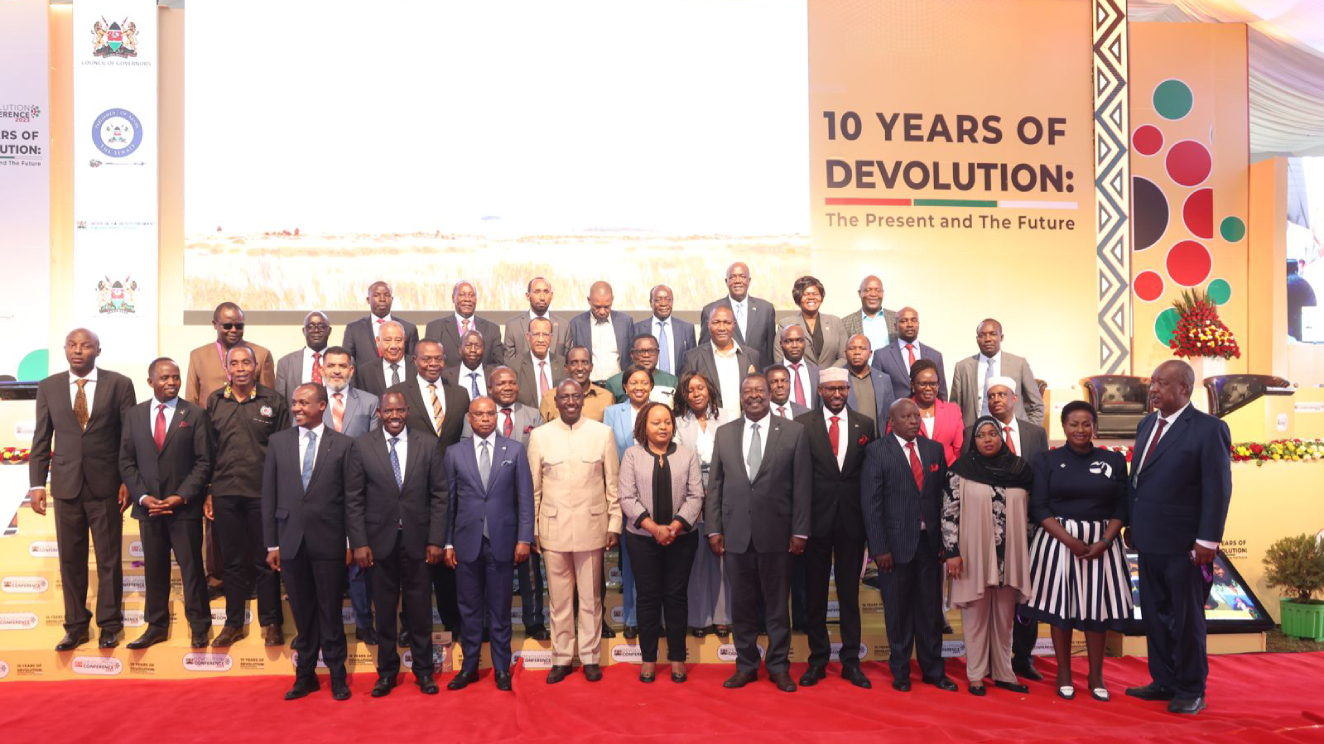Majority of Kenyans (62 per cent) have indicated that corruption poses the biggest challenge to the success of devolution, according to a poll released by Twaweza East Africa.
The Twaweza East Africa survey dubbed “Power to the People? Kenyan Citizens’ Experiences And Opinions On Ten Years Of Devolution In Practice” was conducted through mobile phone.
The poll shows half of Kenyans (51 per cent) are unhappy with their county’s revenue collection compared to 33 per cent who are happy, as 30 per cent feel they pay too many taxes.
Ironically, 47 per cent of Kenyans are unsure about the overall impact of devolution even as 37 per cent said the impact has been positive, and 16 per cent stated it has been negative.
Similarly, 56 per cent of Kenyans say devolution has caused disparities in distribution of resources between counties, as 52 per cent feel there is insufficient budget allocated to the devolved units.
Read More
Only one in 10 Kenyans feel their leaders take the views of citizens into account when making decisions at the national level, compared to 12 per cent at the county level.
Elgeyo Marakwet and Makueni residents are more likely to say devolution is being well implemented, devolution has improved health services, be positive about the impact of devolution and actively attend meetings.
Most Kenyans say devolution has brought positive impacts, 75 per cent say devolution improved services and 58 per cent see positive economic developments in their county.
In that regard, 7 of 10 citizens say devolution has enhanced health services in their county, with more women, youth and those who earn from agriculture more likely to say health services have improved due to devolution than their older, richer male counterparts.
Similarly, 32 per cent of Kenyans (up from 23 per cent in 2018) now say it is very easy to meet the county leaders, 28 per cent (up from 19 per cent) say it is very easy to influence county decisions, and 32 per cent (up from 20 per cent) say it is easy to access information.
But 70 per cent Kenyans say it is not easy to influence county decisions, to meet county leaders (67 per cent) nor to access information on county laws, budgets or projects (65 per cent).
Half of Kenyans say the benefits of devolution include more inclusion, accountability, involvement in decision-making, transparency, and fairer distribution of resources.
In that regard, 83 per cent of Kenyans support devolution with more residents in Tana River, Marsabit, Turkana, Makueni and Elgeyo Marakwet counties in support of decentralization.
“There are some clear signals that yes – citizens engage more and experience better services. At the same time, citizens are highlighting some challenges,” said James Ciera, Twaweza Country Lead in Kenya.
He posed: “The most critical message is that Kenyans still do not feel that government officials, however near or far, genuinely take their views into account when making decisions. This matters deeply for the next decade of devolution.”
The 3,746 respondents were picked through random sampling from a database of contacts from previous surveys to create a new representative panel of the country’s population.
The survey was conducted during the 10th round of the special panel on July 19-27, 2023.











